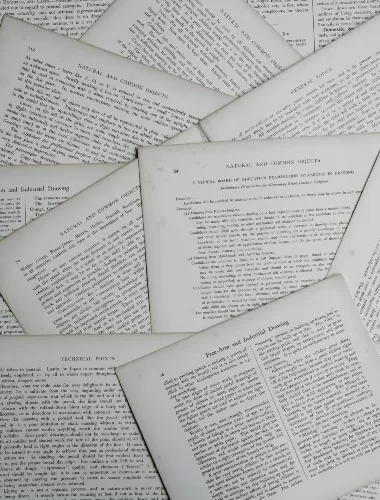The world of academia is built on the foundation of knowledge and research. It is a place where ideas are born, theories are tested, and discoveries are made. However, in recent years, this foundation has been shaken by the rise of fake academic papers. It is estimated that all journals, regardless of discipline, are experiencing a steep increase in the number of fake paper submissions. This alarming trend is not only damaging the credibility of academic publications but also has the potential to cause harm to patients, society, and nature.
According to recent studies, the current rate of fake paper submissions is around 2 percent. While this may seem like a small number, it is important to note that the amount of scholarly publications is constantly growing. This means that a significant number of fake papers are being published, which can have serious consequences when applied in practice. It is time to put an end to this dangerous trend and stop buying cobras – in other words, stop accepting fake academic papers.
Fake academic papers are not a new phenomenon. In fact, they have been around for decades. However, with the advancement of technology and the ease of access to information, it has become easier for individuals to create and submit fake papers. These papers often claim to have groundbreaking research and findings, but in reality, they are filled with false data and fabricated results. They are designed to deceive and manipulate the academic community for personal gain.
One of the main reasons for the rise of fake academic papers is the pressure to publish. In today’s competitive academic world, the number of publications is often used as a measure of success and credibility. This has led to a culture of publish or perish, where researchers and academics feel the need to constantly produce new papers in order to advance their careers. This pressure has created a breeding ground for fake papers, as some individuals resort to unethical means to meet the demands of publishing.
The consequences of publishing fake academic papers are far-reaching. They not only damage the reputation of the journals and publishers but also have a negative impact on the academic community as a whole. It undermines the integrity of research and casts doubt on the credibility of genuine publications. This can have serious implications for future research and the advancement of knowledge in various fields.
Moreover, fake academic papers can also have real-world consequences. They can mislead policymakers and healthcare professionals, leading to the implementation of ineffective or harmful practices. In the medical field, for example, fake papers can result in the use of incorrect treatments or medications, putting patients’ lives at risk. In the environmental sciences, fake papers can have a detrimental impact on the natural world, as false data and findings can lead to misguided conservation efforts.
It is clear that the rise of fake academic papers is a serious issue that needs to be addressed. But what can be done to stop it? The first step is for the academic community to acknowledge the problem and take responsibility for it. Journals and publishers must implement stricter measures to detect and prevent fake papers from being published. This includes thorough peer-review processes and the use of plagiarism detection software.
In addition, researchers and academics must also play their part in stopping the spread of fake papers. They should be vigilant and critically evaluate the papers they read and cite in their own work. They should also be aware of the consequences of publishing fake papers and the impact it can have on their own reputation and the credibility of their field.
Furthermore, universities and research institutions should also take a stand against the pressure to publish and focus on the quality rather than the quantity of publications. This will create a more conducive environment for genuine research and discourage the production of fake papers.
In conclusion, the rise of fake academic papers is a growing concern that needs to be addressed urgently. It is damaging the credibility of academic publications and has the potential to cause harm to patients, society, and nature. It is time for the academic community to come together and take a stand against this dangerous trend. Let us stop buying cobras and work towards a world where genuine research and knowledge are valued above all else.

